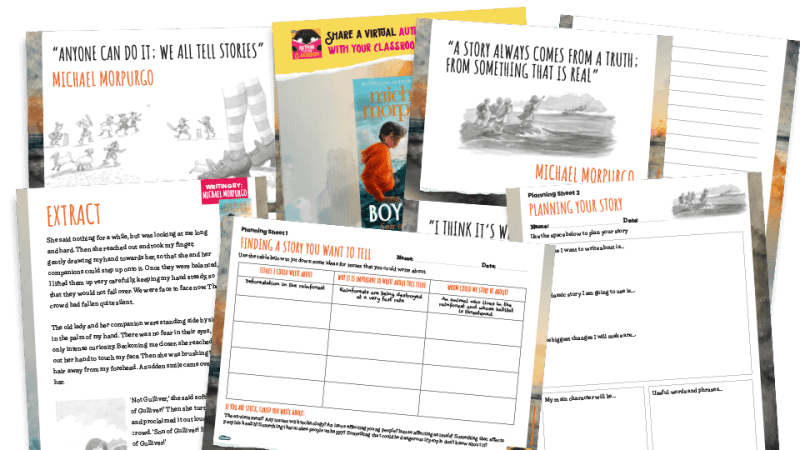Diary entry – KS2 features, examples and lesson plans
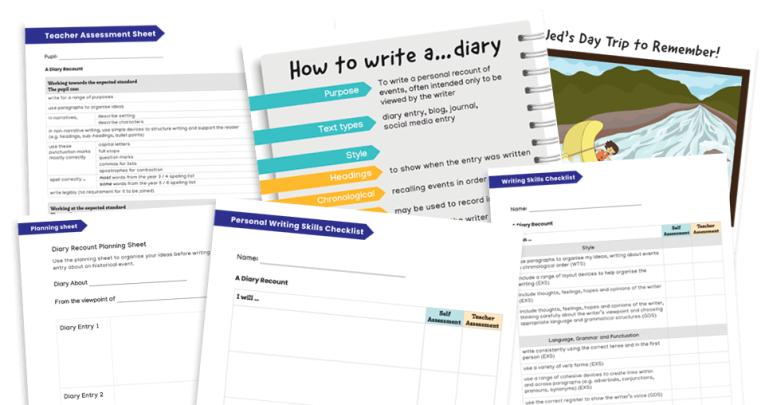
Get primary kids writing great diary entries with this selection of activities, classroom ideas and other resources…

- by Teachwire
- Classroom expertise and free resources for teachers
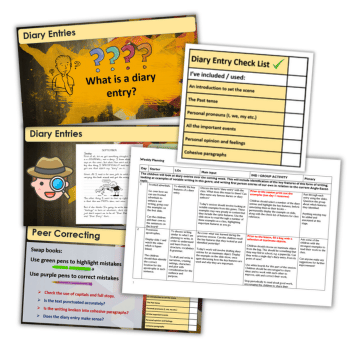
The humble diary entry has provided us with some of our most valued historical sources – from Samuel Pepys to Anne Frank. But that doesn’t mean it’s an archaic form of writing. After all, much of today’s social media usage is simply the current incarnation of recording your own thoughts and experiences.
Diary writing is a genre that should be taken seriously. Here are some ideas and resources for helping you ensure that your class produce something more interesting than a description of their lunch…
What is a diary entry?
A diary entry is essentially a form of recount, giving an account of events that have happened. The difference is that it provides scope for adding a personal perspective, emotions, and possibly an explanation or two where required.
As a result, it can create a very powerful and emotionally charged pieced of writing, which is why it often requires a certain maturity of thought and dexterity with language.
As with any other form of writing, children needs to be exposed to a wealth of good model texts in order to help them learn what will be expected of them.
Features of a diary entry for KS2
At KS2, features of a diary entry should cover fairly specific territory. You might not want to tackle every objective at once, but there is clearly scope to address issues with which your class might need extra practice. Here’s what you should expect to cover…
Tense
- Consistent and appropriate use of the past tense
- Some present tense forms if the context dictates
- Progressive forms of both tenses
- Perfect forms
Structure
- Brief introduction
- Chronological order to show how events unfolded
- A new paragraph for every shift in time, place or subject
- Topic sentences to alert the reader to the nature of that change
- Closing comment to round off the piece
Grammar
- Conjunctions, adverbials and prepositions to express time, place and cause
- Noun phrases and expanded noun phrases to add greater clarity
Diary entry KS2 resources
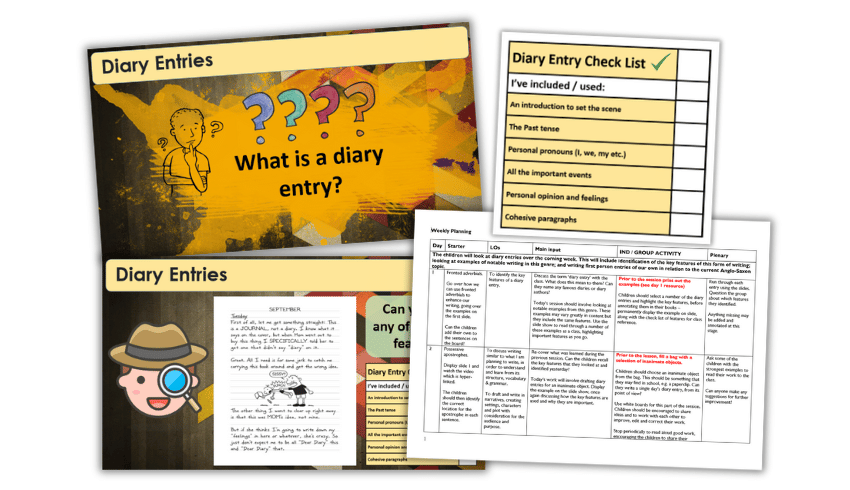
This fully resourced diary writing KS2 download contains a week’s worth of English activities. There are four lessons with full planning, a Powerpoint presentation for each day and a daily starter.
Y5/6 Paddington diary writing activity
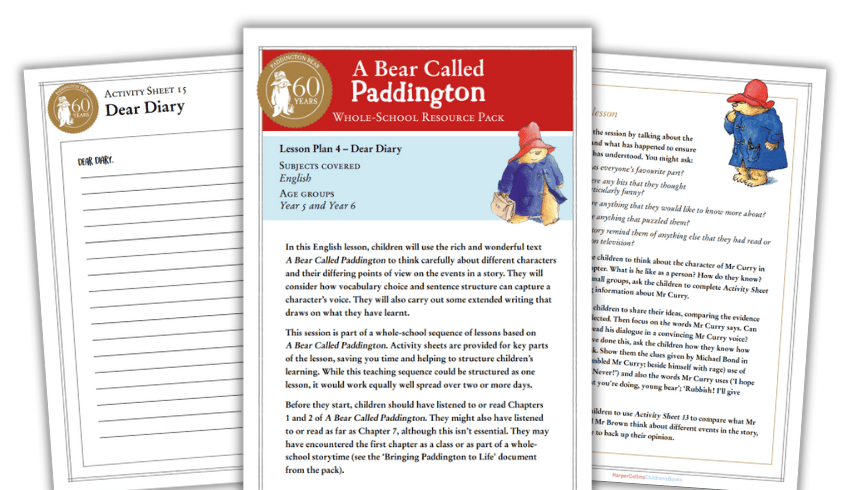
Use the rich and wonderful story, A Bear Called Paddington, to think carefully about different characters and their differing points of view on the events in a story.
Children will write diary entries, using events in this rich narrative for inspiration. Use the free teacher notes and activity sheets to save time and help structure children’s learning.
Diary recount KS2 writing evidence

In this writing task from Plazoom, pupils need to write a diary, recounting a key historical event. You can use this within a history topic. This resource pack includes:
- diary recount writing skills checklist
- diary writing poster
- picture prompts and sequencing cards
- diary recount planning sheet
- teacher assessment sheets
Find out more about Plazoom.
Inspiring people scheme of work

Use this free resource alongside the book Amazing Muslims Who Changed the World to explore modern and historical inspirational figures. The scheme of work concludes with pupils applying their knowledge by writing a creative diary entry.
Topical Tuesdays activities
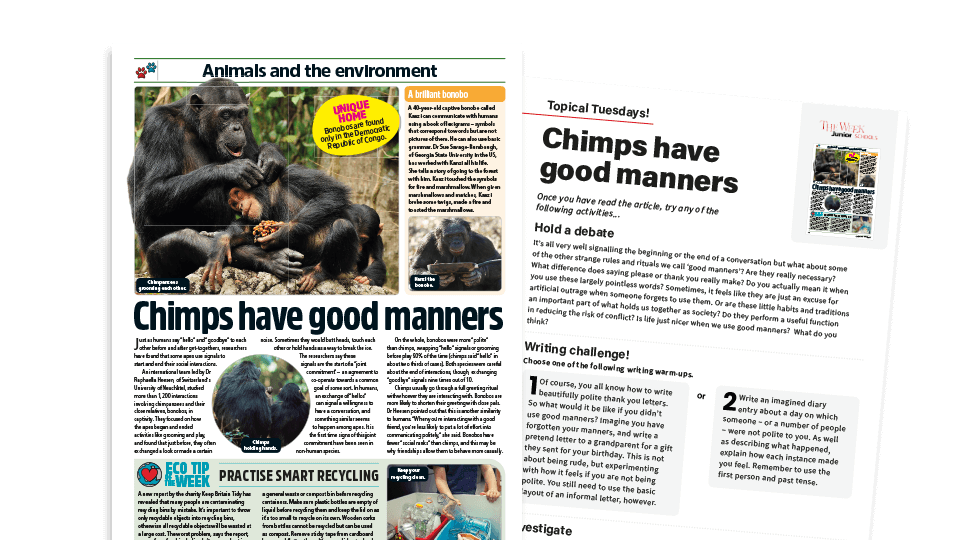
Literacy resources website Plazoom hosts a large number of free Topical Tuesdays resources. Each one features a story from a children’s newspaper plus a ten-minute writing activity that you can do in class or set as homework. Many of these are great stimuli for writing a diary entry.
For example, write a pretend diary entry about:
Trending
- finding a tree in a lonely wood that has a tiny door in it
- a day where someone was not polite to you
- trying a new activity
- going to see the Crown Jewels
- washing up in a country where you don’t speak the language
- facing a difficult situation but receiving encouragement
The Journey diary writing unit
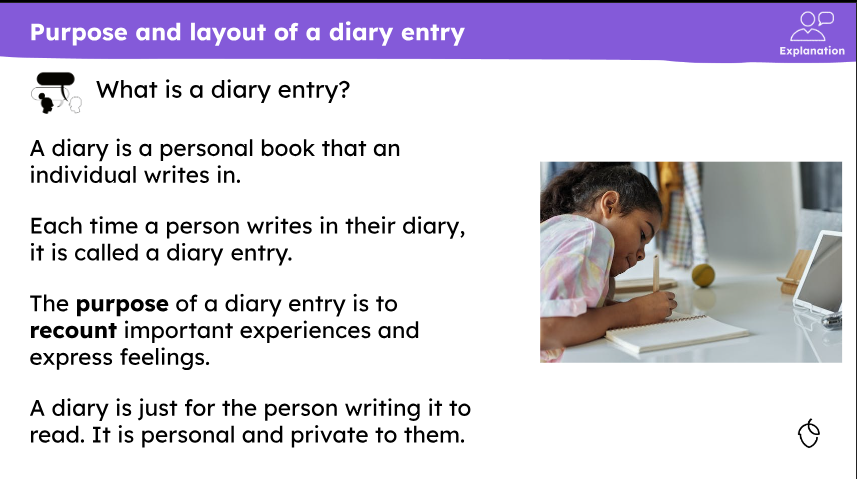
This diary writing lesson for Year 3 from Oak National Academy focuses on the book The Journey by Francesca Sanna. There’s a free slide deck, video, worksheet, quiz and more to get your teeth into.
Year 6 diary writing
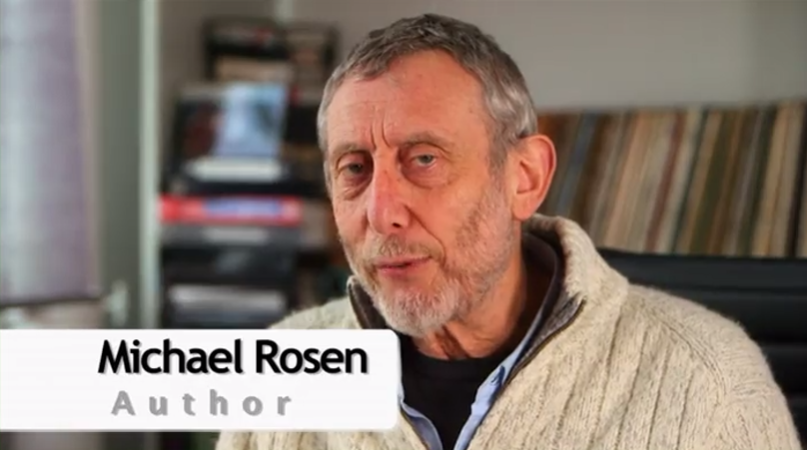
Use this BBC Bitesize activity to teach your Year 6 pupils how to use the features of diary writing in their own work.
First watch poet Michael Rosen explain how to write a recount, then watch a video about why diaries were so important in WWI.
Now it’s your pupils’ turn to write a diary entries from the perspective of Emmeline Pankhurst and Ibn Battuta.
Diary of a Wimpy Kid diary template
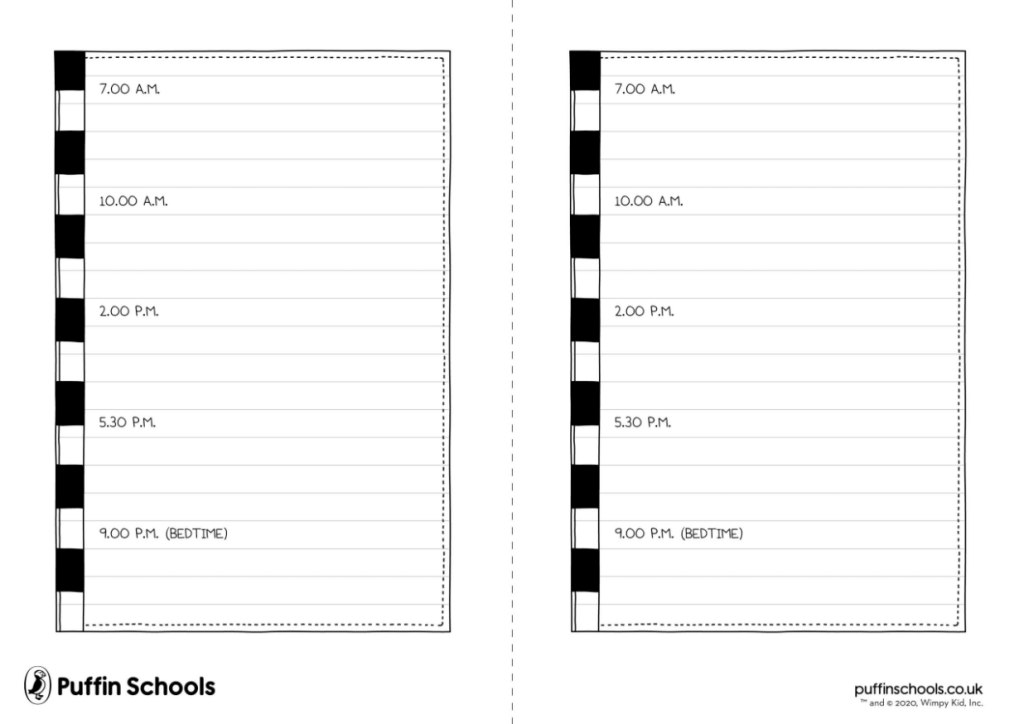
This activity provides a framework for children to write their own diary entry across two days in the style of the Diary of a Wimpy Kid books.
It is divided up into times of the day, so they’re only writing short sections for each, rather than being given one long piece to do.
Diary entry examples
KS2 books featuring diary entries
The Amazing Tale of Ali Pasha by Michael Foreman
Based on a true story, this tale of a tortoise called Ali Pasha in WWI is revealed through flashbacks and journal entries that chart his journey from the battlefield of Gallipoli to a small village in Suffolk. Download cross-curricular activity ideas here.
National Trust Secret Diaries series by Philip Ardagh
This fact-packed, funny, exciting and historically accurate series focuses on four different protagonists – a medieval knight in training, a Victorian maid, a Tudor boy and a smuggler’s daughter. The individual voice of each diary gives a flavour of the language of the time, without being too difficult to read or too serious.
The Haunting of Aveline Jones by Phil Hickes
The Haunting of Aveline Jones is a book that’s bursting with atmosphere and provides an introduction to several literary forms, including first-person diary entries.
Pupils may want to borrow the following diary entry beginning from the novel: ‘So, I expect you want to know a bit more about me if we’re going to be spending a lot of time together.’ Download more activity ideas here.
Diary entry WAGOLLs
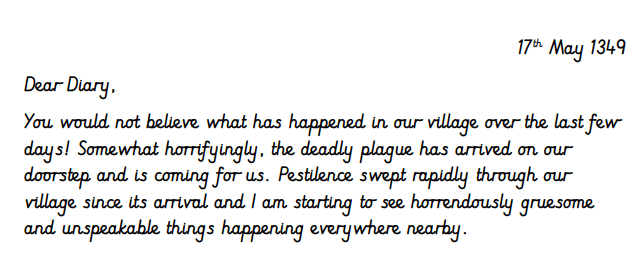
If you’re after a whole selection of model texts for KS2 diary entries then head over to Literacy Wagoll where you’ll find everything from Anne Frank and ‘My first day at school’ to Hades – God of the Underworld.





